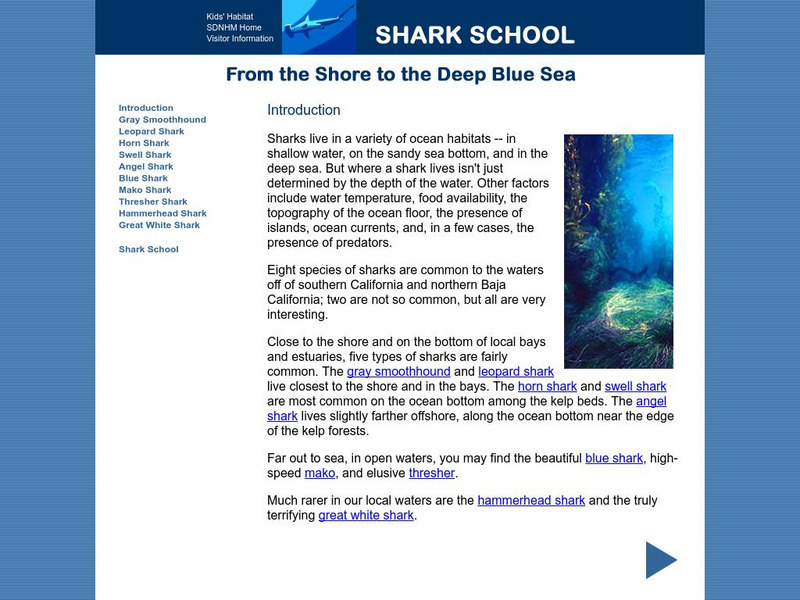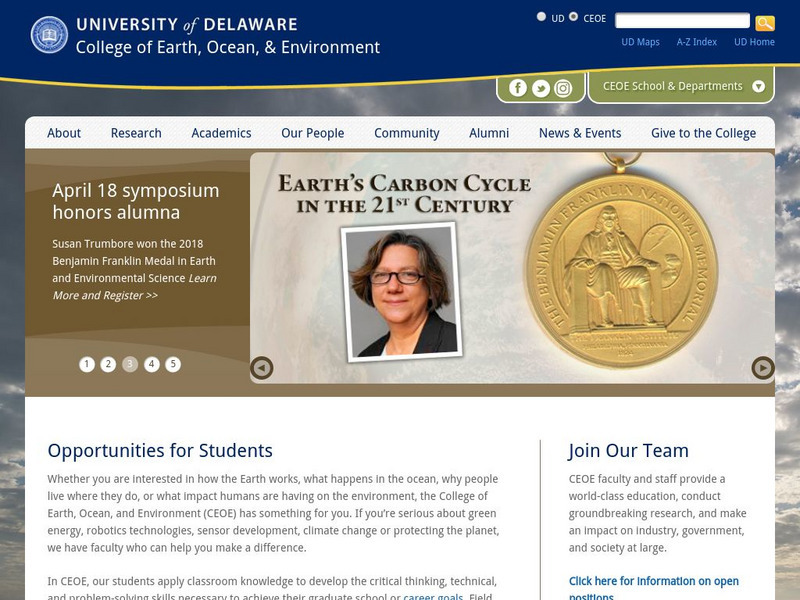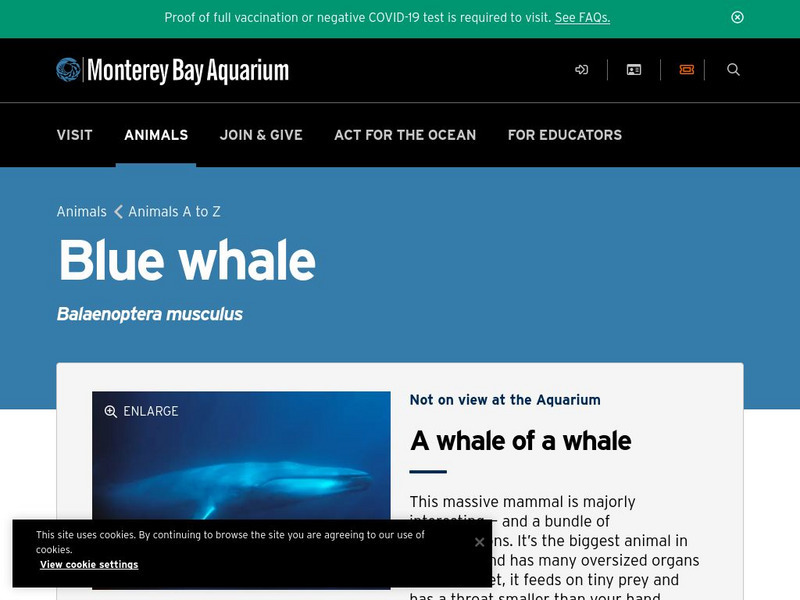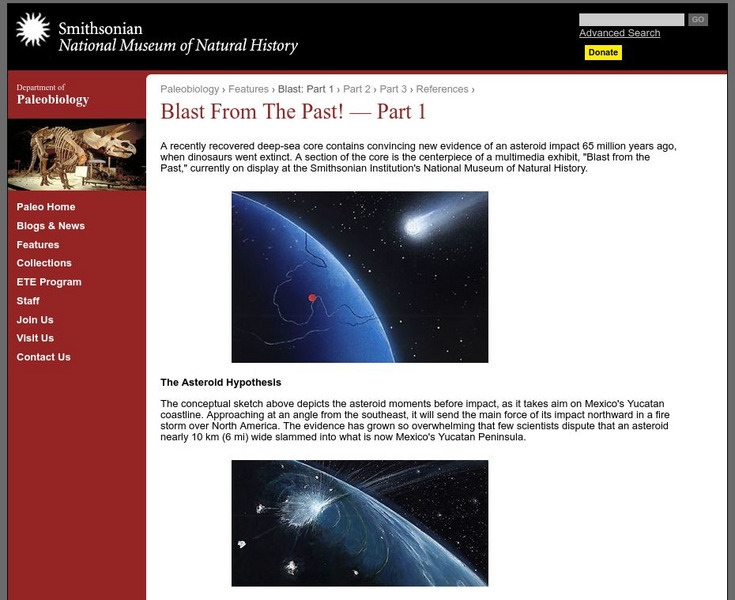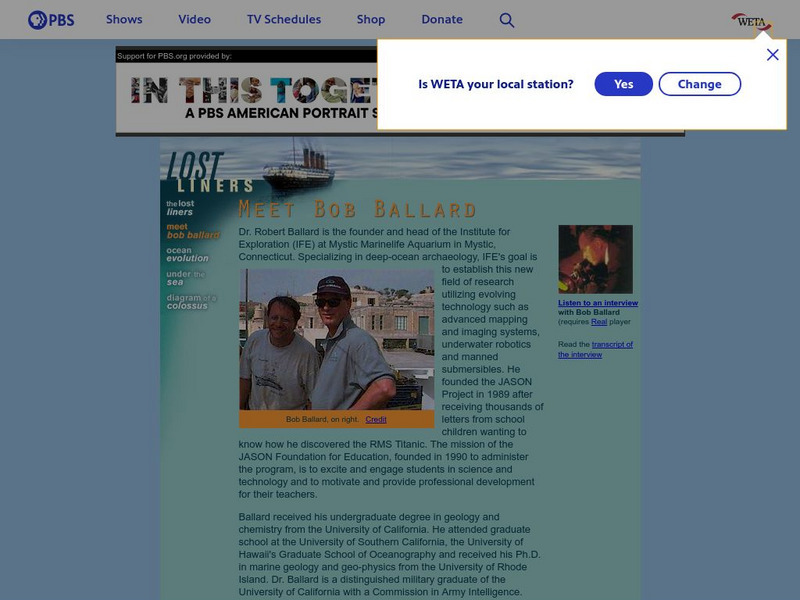Hi, what do you want to do?
Science Struck
Science Struck: Interesting Facts About the Abyssal Zone
The Abyssal Zone lies deep in the ocean in the pelagic layer between 4,000 to 6,000 m or 13,000 to 19,500 ft. Learn about some of the unique life forms that call this zone their home, how they have adapted to the extreme pressure and...
Extreme Science
Extreme Science: Challenger Deep
A short description of the world's deepest ocean trench. Includes diagram and map.
San Diego Natural History Museum
San Diego Natural History Museum: Shark School: From Shore to the Deep Blue Sea
Small site provides information on different types of sharks: mako, thresher, hammerhead, horn, and others.
Other
Voyage to the Deep: Tubeworm
This is a very brief overview of tubeworms, a hydrothermal vent marine animal.
Other
Voyage to the Deep: Vent Crab
Learn about vent crabs in this overview that includes a QuickTime video clip and several photos.
My Science Site
Beneath the Sea: Blowing Ballast [Pdf]
Students dive down deep as they experience a hands-on activity and build a model of a submersible. Lesson plan includes a web connection, a teaching guide, extensions to learning as well as curriculum links and national science...
American Museum of Natural History
American Museum of Natural History: Find a Vent
Learn all about hydrothermal vents deep in the ocean and how scientists locate them. Then take a virtual expedition to the Juan de Fuca Ridge in the north Pacific and see if you can discover a new deep sea vent.
Science Buddies
Science Buddies: Can You Predict a Bird's Lifestyle Based on Its Feet?
Animals have special features that allow them to adapt to conditions in certain environments. You might not be able to dive down 3281 feet to observe the deep sea anglerfish, but in this science fair project you can discover what the...
Smithsonian Institution
National Museum of Natural History: Ocean Planet
Detailed website that was a companion to a 1995 traveling exhibit of the Smithsonian. Links to lesson plans and other educational materials are at the bottom of the page. Enter the exhibition to explore the world of the ocean.
Tramline
Tramline, Inc.: Virtual Ocean Field Trip
In this enchanting site, students will learn basic principles about oceans and will be introduced to an assortment of sea life, both plant and animal. Other interesting ocean links can be found on the teacher resource section of this link.
American Museum of Natural History
American Museum of Natural History: Oology: Expeditions
This student module includes short, informational text, images, interactive games, and quizzes about ocean exploration.
Woods Hole Oceanographic Institution
Woods Hole Oceanographic Institution: Tsunami: An Interactive Guide
A complete, interactive learning activity covering the science of tsunamis, preparedness, research, and historical tsunamis. Excellent animations and real, historical recordings of survivors allow the learner to experience what happens...
Monterey Bay Aquarium
Monterey Bay Aquarium: Blue Whale (Balenoptera Musculus)
Resource that gives information on the diet, range, relatives of the blue whale. Conservation notes and cool facts are also included. There are links to similar information on dozens of other types of marine life.
Science Education Resource Center at Carleton College
Serc: Black Smokers: Life Forms
This educational web site features life forms of deep sea hydrothermal systems. Hosted by the American Museum of Natural History, this site offers a brief introduction of the community and then focuses on Vestimentiferan tube worms,...
Science Education Resource Center at Carleton College
Serc: Who Has the Light?
This lesson explores bioluminescence. Discover which deep-sea organisms are capable of bioluminescence, and how this ability benefits these organisms. In this activity, students compare and contrast chemiluminescence, bioluminescence,...
Science Education Resource Center at Carleton College
Serc: All That Glitters
This Ocean Explorer lesson plan (PDF) explores the questions: What colors, if any, are visible down in the deep sea? What is bioluminescence? Young scholars will learn about white light (visible light), the quantity and quality of light...
Science Education Resource Center at Carleton College
Serc: Bioluminescence: Living Light
This National Geographic lesson plan explores bioluminescent creatures and the underwater world in which they live. Using shoeboxes and black paint, students are directed to build a deep-sea model and inhabit it with fish made out of...
Smithsonian Institution
National Museum of Natural History: Paleobiology: Blast From the Past!
Examine evidence of a deep-sea core that provides evidence of an asteroid impact sixty-five million years ago, which may have contributed to the extinction of the dinosaurs.
Science Struck
Science Struck: What Are Ocean Trenches and How Are They Formed?
Around 72 percent of the Earth's surface is found under the oceans. It has always been contributing to the dynamically changing face of the Earth through the tectonic phenomenon occurring at its depths. Such a naturally occurring...
TED Talks
Ted: Ted Ed: How Squids Outsmart Their Predators
Carly Anne York explains how the stealthy cephalopods have mastered deep sea survival.
PBS
Pbs Meet Bob Ballard
Geologist, chemist and oceanographer. Learn about this fascinating man that found the Titanic, the Bismark and a lot of other sunken ships.
Other
Poetry Lovers' Page: Rudyard Kipling
An alphabetical listing of all of Rudyard Kipling's (1865-1936 CE) poems. Included in the list is a link to biographical information.
Other
The Kipling Society: Some Kipling Poems
This site from The Kipling Society provides full texts of almost 40 of Kipling's poems.
Other
College of Exploration: Ocean Literacy [Pdf]
A guide to help educators become ocean literate. The goal is to redress the lack of ocean-related content in state and national science education standards, instructional materials, and assessments. PDF (requires Adobe Reader).
Other popular searches
- Deep Sea Environment
- Deep Sea Environments
- Deep Sea Angelfish
- Deep Sea Diver Clipart
- Deep Sea Habitat
- Deep Sea Diving
- Deep Sea Fish
- Deep Sea Corals
- Deep Sea Zones
- Deep Sea Writing
- Deep Sea Vents
- Deep Sea Submersibles







